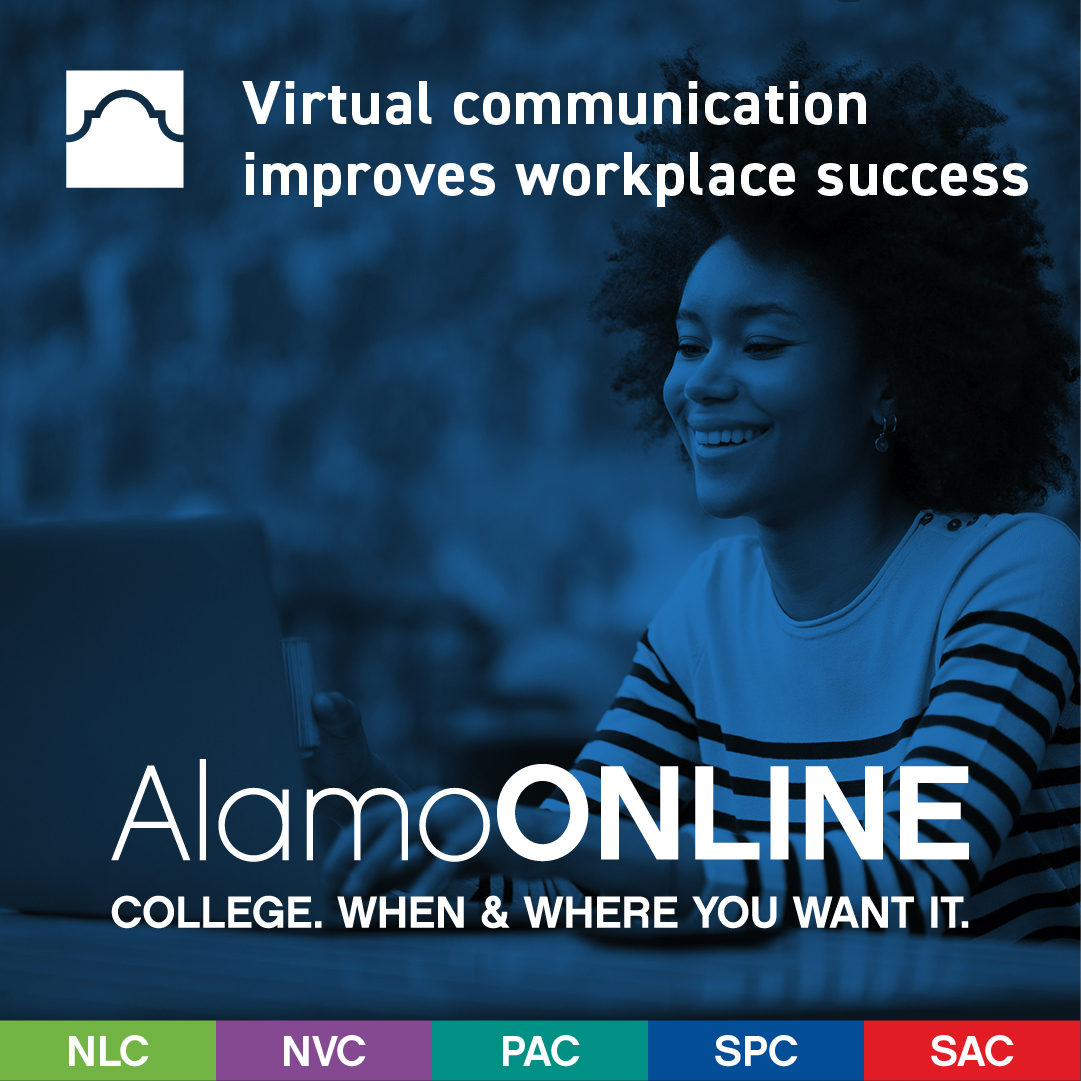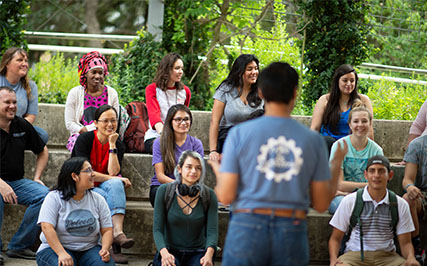Online learning improves virtual communication skills
September 18, 2020
 Online students rely heavily on virtual communication skills to communicate with classmates and instructors. Suppose you are part of the overwhelming percentage of Americans who prefer emails and texting to in-person conversations. In that case, this may sound like the perfect way to communicate—but hold on. It’s important to remember that the casual way you text your friends should not be carried over to your class emails and posts. Part of being a successful online student is learning to strike a professional tone; otherwise, your messages could come across as flippant, unclear, or even offensive.
Online students rely heavily on virtual communication skills to communicate with classmates and instructors. Suppose you are part of the overwhelming percentage of Americans who prefer emails and texting to in-person conversations. In that case, this may sound like the perfect way to communicate—but hold on. It’s important to remember that the casual way you text your friends should not be carried over to your class emails and posts. Part of being a successful online student is learning to strike a professional tone; otherwise, your messages could come across as flippant, unclear, or even offensive.
As an online learner, it is in your best interest to first practice your virtual communication skills now as opposed to your first (or next) professional job, where the recipients of your messages will be co-workers, managers, and even executive leadership. Listed below are three common types of virtual communication tasks that will appear in both online courses at the Alamo Colleges and at your current or future workplace. Keep reading for a better idea of why these tasks are important to master and how you can improve in each area.
 Virtual group collaboration projects
Virtual group collaboration projects
Group projects have their share of innate challenges, but virtual group projects have the added challenge of being accomplished in a remote setting. As an online student, you will have to rely on either email or video conferencing to understand project expectations. Which team member is responsible for “X” part of the project? What program will you use to compile the team’s research and resources? What are the deadlines for each stage of the project? If posing these questions through email, you should be careful to use phrasing that is concise but not demanding. If the first meeting will be through Zoom or Google Hangouts, it’s essential to have these organizing questions ready to go so that the initial meeting time is used productively.
As an online collaborator, your contributions make you a valuable group member. Your time, energy, and insights matter and enhance the quality of your group’s final product. Each conversation, question, and virtual meeting becomes a building block that establishes community and trust within your workgroup. Successful virtual collaboration is a skill that has become integral in today’s workplace, so don’t try to avoid it when a group project opportunity emerges in your online class. Embrace, practice, and implement it, so that you are prepared to participate in successful workplace collaborations, where deadlines and expectations can be reflected in your job performance rating.
 Video conference meetings
Video conference meetings
With the emergence of remote learning, you may have heard of students who attend their Zoom class from their bed, outside, or even shirtless. When it comes to participating in a professional video conference, the rule of thumb is to attend the way you would if the meeting were taking place in-person. Professional meetings require you to dress in appropriate attire and sit at a desk or table. Adding adequate lighting and inserting a virtual background will also go a long way to improving your professional appearance.
Practicing professional video conferencing habits today will build better habits tomorrow. Zooming or FaceTiming classmates may not seem like a situation that requires planning, but your next job may require that you participate or even host virtual meetings with important individuals at your workplace, including stakeholders whose perception of your professionalism could potentially impact your opportunities to participate in projects.
 Written critiques to others
Written critiques to others
In an online course, you are sometimes asked to email or post a critique of another person’s work. A successful review requires you to demonstrate your ability to communicate in a concise, respectful, and professional manner. For example, in an online course, you may be asked to critique a classmate’s paper, video, or presentation. To respond in a professional way, you should be strategic with the words you choose, the reasoning you use, and how you phrase your thoughts. You must also be prepared to provide suggestions or solutions. Simply writing, “I like your presentation,” will not earn you a high grade from your instructor, and it doesn’t benefit your classmate, either.
Similarly, you must be prepared to receive critiques about your work. Having others comment on a project or product you have worked hard to develop can be difficult. If you feel the critique is undeserved or unfair, remember that responding rudely is unprofessional and unproductive. Online courses and professional workplaces share an expectation of good behavior, so learning how to articulate professional responses to the feedback you disagree with is a necessary communication skill to develop. An online course gives you ample opportunity to perfect the art of providing and receiving feedback. Better yet, you will receive and give feedback and critiques through virtual software that will be common in the workplace.
With each online course you complete, you are developing virtual communication skills to serve you in your future career better. Not only will these communication skills help you succeed in earning your online degree, it will also prepare you for success in professional environments, whether it is remote or in person.
For more information
Contact an Enrollment Coach, today!Enrollment Coaches are here to help you get started with the application process and to guide you through registration for fully online courses this upcoming semester. We can also connect you to an advisor, as well as refer you to services available to online students. Don't delay, call (210) 485-0110 or email AlamoONLINE@alamo.edu, today!Frequently Asked Questions |
About AlamoONLINEAlamoONLINE represents the range of opportunities for students pursuing degrees, certificates, or other offerings delivered 100% online from Northeast Lakeview College, Northwest Vista College, Palo Alto College, San Antonio College, and St. Philip’s College. At our Alamo Colleges, a 100% online degree, certificate, other offering, or Transfer Advising Guide (TAG) has all courses offered fully online and does not require students to come on campus or to an external site except for required proctored exams or to participate in a clinical, internship, cooperative education, or practicum site. |



